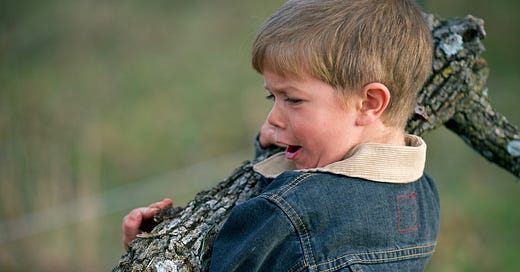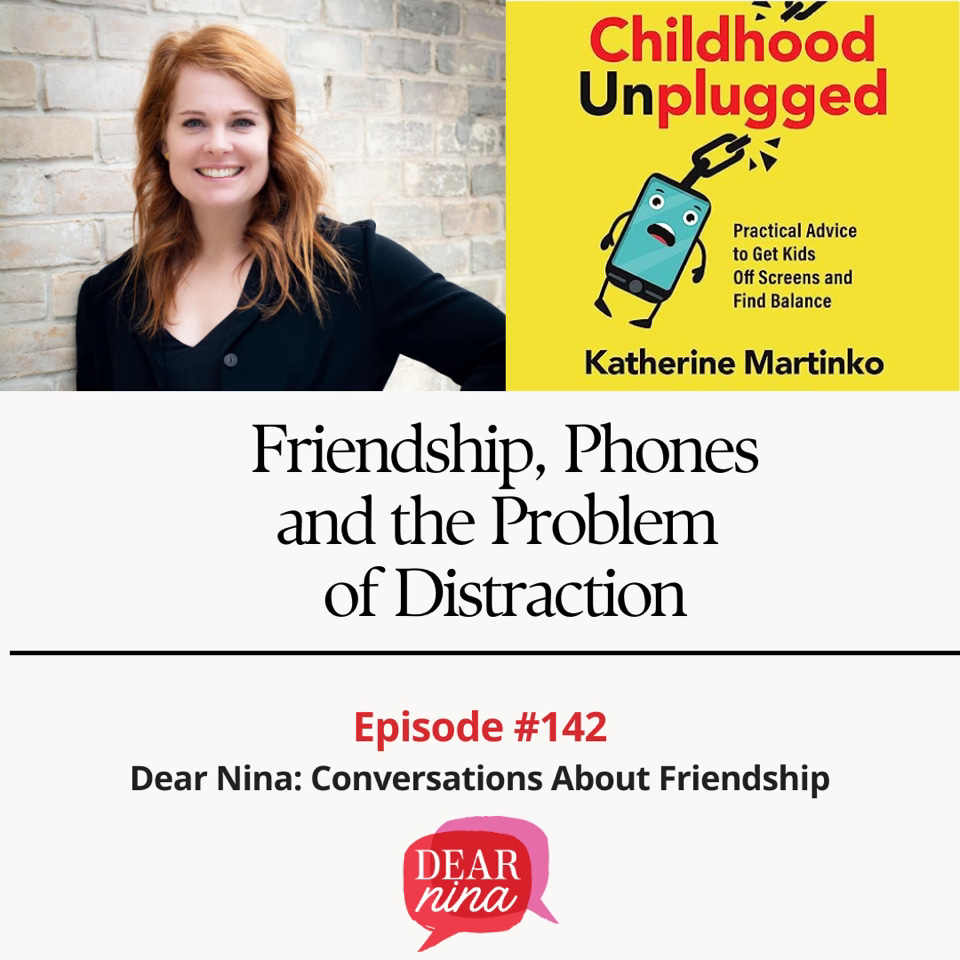Ever Heard of 'FAFO' Parenting?
This trending phrase favours letting kids discover natural consequences.
The first time I heard about "FAFO" parenting was when a woman I know shouted it at her son when he refused to get in the car. The son hopped in immediately, so clearly he knew what it meant, even though I was still in the dark.
An Internet search revealed a trending phrase that stands for "f--k around and find out." The gist of it is, let your kid run into the natural consequences of behaviours they have been warned about (within reason), and that will teach them a lesson.
So, for example, instead of fighting with a child to put on a coat when it's cold outside, a FAFO parent says, "OK, you can be cold," and lets the kid go without a coat. If a child resists eating dinner, a FAFO parent says, "You can be hungry." A more extreme example might be a child not wanting to study for a test, and a FAFO parent saying, "You might fail."
Some decisions cannot be left up to a child, when the natural consequences might cause too much harm. To quote teacher Jody Stallings, "You don't want to put your hands on your hips, shake your head, and look down at your bleeding child, saying, 'I told you not to jump off the roof with those scissors.'" Or—an image that popped into my head right away—let them lie on a beach in full sun without sunscreen.
FAFO parenting is considered to be a reaction to gentle parenting, which spends a lot more time discussing actions/consequences with kids and coaxing them to make smart choices. Many parents are feeling drained by gentle parenting, as it takes a great deal of energy to convince a child of something they don't want to do.
I'm Not Convinced
At first, I thought I liked FAFO parenting. It reminded me of the authoritative style I use with my own kids, and I'm certainly in favour of letting kids discover the natural consequences of their actions. But upon further consideration, I have realized that I don't like how FAFO parents still have to cope with the fallout from their kids making poor choices.
Even though it appears that the child is the one experiencing the effects of their decision, such as being wet in a rainstorm without a raincoat or bombing a test that they refused to study for, inevitably the consequences are transferred to the parent and other family members, as well.
The child refusing to eat is making it all about themselves, failing to consider how rude it is to reject a meal that someone paid for and worked hard to prepare, along with the effect on everyone else sitting around the dinner table; it ruins the whole meal, which no one has the right to do, no matter their age. Then that hungry child might wake up at night and beg for food, which the parent has to refuse (a horrible feeling) if they truly want to teach their child a lesson.
The cold, wet child is going to complain and potentially make things miserable for the rest of the family. A parent has to deal their wet, muddy clothes eventually. Parents who let a lazy kid fail in school set him or her up for failure down the road; and there's always a chance that the FAFO lesson will backfire, giving an unmotivated child an excuse not to do any better.
What Happened to Obedience?
I applaud the intention of FAFO parenting, but can't help wondering why it is so difficult to expect a child to obey their parent's requests. No child is ever going to agree with what their parent wants them to do all the time, but that doesn't matter. They are children, and they can't possibly understand why they are being asked to do certain things. A child's job is to learn how to function optimally in the world, and they do so by obeying their (loving, kind, well-meaning) parent.
The idea of obedience has a bit of a negative connotation nowadays, reminiscent of submission. That is not how I think of it. I have spirited, big-personality children who are anything but submissive in their approach to me and to life, but they understand that when I ask them to do something, they are expected to do it promptly, without challenge or complaint. (Believe me, they still try.) I am open to questions and debate at a time that's convenient for me, not in a moment when we're rushing out the door.
It doesn't always go smoothly, but my boys understand that I do not need to justify my requests to them, especially if those requests make my life easier. I'm the one running the show, after all, and I tell them there's a whole lot going on behind the scenes that they are not aware of.
This expectation of general obedience makes our life flow so much more easily; it reduces strife and tension, and frees us up to focus on other, more engaging discussions and debates. I think it's also less exhausting and unpleasant for the child, who is liberated from the impulsive vagaries of their own mind; they learn to trust the parent to know the right way to behave.
Having them refuse to put on winter coats when it's frigid outside would simply be a non-starter in our household. It's not an option, no matter how profound the lesson might be. If I tell them they need a coat, then they need a coat. They might be allowed to carry it or pack it in a bag, but it has to go with them if I've deemed it necessary—because I don't want to deal with what it means to have a miserably cold kid an hour later.
Refusing to eat is also not allowed, unless they're sick or full from something else. They need nourishment, and I work hard to make delicious food for them to eat. They may dislike certain dishes, but they still have to eat what they're served, or at least eat a single bite of whatever they intensely dislike. If that means they need to sit uncomfortably at the table for a while until it’s finished, then so be it.
I am in favour of any parenting trend that lessens the burden for parents, both immediately and long-term, while raising smart, respectful, self-disciplined children who know how to take care of themselves and engage pleasantly with the world around them.
I also think our kids need to grow up realizing that we live in community, surrounded by others whose needs must be considered when we're choosing how to behave. We don't operate in isolation, and kids should realize that, too.
Do any of you readers have experience with or thoughts on FAFO parenting? Please share in the comments below.
You Might Also Like:
New Podcast Episode!
I had a lovely chat with Nina Badzin for her podcast Dear Nina: Conversations About Friendship. As she said, “This episode isn’t an anti-tech rant—it’s a nuanced conversation about building a life and fostering friendships offline with intentionality. We explore what’s lost when we let phones dominate our social time and what’s gained when we reclaim our attention and presence.”
Please have a listen here on YouTube or on Spotify or on Apple Podcasts.






FAFO is one of those things that taken to extremes is obviously dumb. Children don't have fully developed prefrontal cortexes so they are literally incapable of (fully) acting with long-term consequences in mind. There's a reason insurance companies charge higher premiums until one is in their late 20s.
But I think a lot of FAFO is best viewed not about child behaviour but about parental behaviour. A lot of parents are, in practice, super uber controlling of their children over things that don't actually mean anything. Consider: do you let your children wear mismatched socks or does that bother you and you make them change?
The classic example is arguments over jackets during winter. But children have much more brown fat than adults so our subjective feelings of coldness are irrelevant to someone with a very different body composition. (But, going back to the prefrontal cortex thing, children aren't great at understanding "I'm not cold right now but I might be after spending 60 minutes outside".)
FAFO is as much about the parents learning that tons of things don't actually have big consequences as it is about children learning that some things do.
My kids were born in a third-world country. Here are some things that parents are (very) controlling about. Most of them probably strike an American as completely unhinged. But one point of FAFO is parents, instead of preempting their kid's actions, will discover things aren't usually as bad as they think they will be.
Drinking cold water (especially with ice, definite no no!).
Being outside in sunlight, especially during the 1st year after birth.
Tightly wrapping your neck, to keep it warm, when you have a sore throat.
Keeping your feet warm (e.g. by wearing socks) because you will get sick otherwise.
Not bathing at night.
Not eating shrimp or pork when you have a cut or other open wound.
Not eating a banana when you have a fever.
Having a fan on when you exit the bath after bathing.
Going outside at night during the 7th month of the lunar calendar.
I think "FAFO" is best thought of as one of several ingredients to use in the mix of parenting techniques, best at the right times and in the right amounts rather than as a single comprehensive strategy. Like making sure you get enough fiber in your diet. I see the increased interest in "FAFO" parenting as like people realizing they haven't gotten enough fiber in their diet. No fiber in your diet is unhealthy. Too much fiber in your diet is unhealthy.
Not enough FAFO in your parenting us unhealthy for you and your kids. Too much FAFO in your parenting is unhealthy for you and your kids.
A quick example from our world: A couple of months ago our two year old wanted to walk out on the deck barefoot and without a jacket when it was cold and rainy. I told him no, it's too cold and wet. He insisted, as two year olds do. "OK, go see what it's like!" I said. Within 30 seconds he was back inside, cold and wet, and has not asked to go out on the deck when it's cold and wet since.